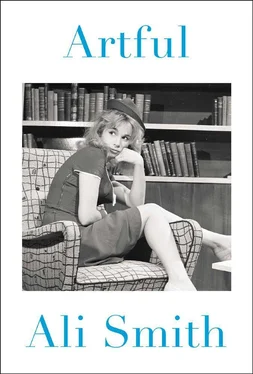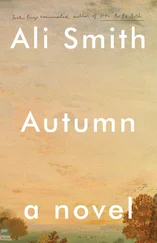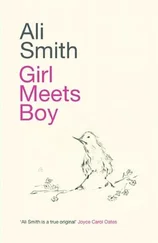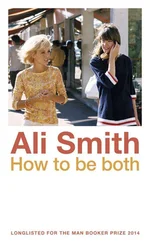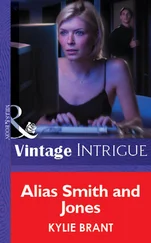I read your letter I don’t know how many times.
I poured myself a whiskey. I drank it. I poured myself another. I went through and got my laptop and typed into the search box the words Ypomoni aliki vougiouklaki.
It wasn’t very good quality. But up came a black and white table loaded with food, wine, beer, then the camera revealed both sides of the table crammed with people, and at the end, at the head of it, were some musicians and a woman with very bright hair.
I clicked about a bit to find a better version, one not so pixelated.
The woman with the bright hair was holding a party, being hospitable, smiling, helping the people next to her at the table to food. She had dark eyes but she sat like a torch lit at the end of the long table and when the camera came up close to her like she was irresistible and it couldn’t not, she was singing along with the man next to her who was playing a mandolin thing (later I’d find out it’s called a bouzouki). Then she raised a glass to the whole table: cheers! she said, I think, in Greek, and everybody at the table said it straight back in response.
I looked up some other clips featuring this actress. In one, in blazing color, she was on the back of a donkey in a procession of people on donkeys coming down the slope of a hill through countryside below sky, rich blues and greens, and she sang a happy-sounding song all the way to the sea. In another she did a dance that made me laugh out loud, because she was such a rubbish dancer. A couple of clips later I realized that this actress had made a grace out of being a rubbish dancer, that whenever she danced in a film she did it like a human being, like someone who’s only quite good. In fact, everything she did had something both graceful and a bit gauche about it — gauche like a real person, not an actress being gauche — the way she moved her body, flicked her nose, blew her hair out of her eyes, squared herself for her next line of song or dialogue. She was charming, especially in the early footage. She was camp in a way that was innocent of sarcasm. She was passionate and funny both at once, like she could play them simultaneously because they were really the same thing. In one clip she danced round a big hanging fishing net in a restaurant then round a table in the restaurant and her skirt knocked a basket of bread off the table, and I couldn’t tell whether that was supposed to happen in the film or had happened spontaneously in the take and they’d kept it in because it was so right.
At three in the morning on the first night of longer spring light of the year, I took your pages on offer and reflection to bed with me and I read your letter again.
To be known so well by someone is an unimaginable gift. But to be imagined so well by someone is even better.
I sat up in bed and read what you’d written about reflection.
When I thought it was probably time I got off to sleep, the new day’s light was up.
1. Through the Looking
If art is a holding up of the mirror to nature, then The Mirror of Ink, the short story by Jorge Luis Borges (translated by María Kodama), teaches us that the vision which comes from nature united with art — the magic vision of the world in all its facets, there in the pool of ink in the palms of our own hands — is almost unbearably beautiful and will mesmerize us with this beauty, then with revelations of our cruelty and mortality. ‘He was possessed by the mirror; he did not even try to turn his eyes aside, or to spill out the ink.’
Angela Carter’s early novels are full of troubled and broken mirrors, blinding narcissisms and deceptions, distorting halls-of-mirrors reflecting desire as a mirror-show which begins as exoticism and ends in violence and violation — in the rape experienced, for example, by Desiderio, the protagonist in The Infernal Desire Machines of Doctor Hoffman (1972), at the hands (and the eyes) of the Acrobats of Desire, in their ‘metallic shifts’ which ‘wounded the retina.’ The insides of the Acrobats’ traveling-van is walled with mirrors and photographs. ‘Had I not known all along it was done with mirrors?’ he says, before the Acrobats literally ‘do’ him:
the men were infinitely repeated everywhere I looked and now eighteen and sometimes twenty-seven and, at one time thirty-six brilliant eyes were fixed on me.…I was Saint Sebastian stuck through with the visible barbed beams from brown, translucent eyes which spun a web of fine, shining threads on the air like strands of candified sugar. Once again they juggled with their hypnotic eyes and used their palpable eye strings to bind me in invisible bonds.
But in her final novel, Wise Children (1991), Carter resolves the fracturing, the cultural deceptions and vanities which up to now she has associated with mirror-imaging, in her creation of Dora and Nora Chance, a pair of twins born on the wrong side of the tracks, mirrors to each other and a mirror, too, to their own far side, the upper-class family to which they illegitimately belong. The novel is an act of synthesis performed by talented hoofers whose syncopation brings together, into the same dance, the opposing forces: youth and age, wealth and poverty, theater and cinema, high art and low, Shakespeare and music hall, plus this reflective healing act tossed back over their shoulders at all the divided or violated Carter selves who came before them.
Here’s a story from Oscar Wilde about what happens when reflection is at its most narcissistic:
When Narcissus died, the flowers of the field were desolate and asked the river for some drops of water to weep for him. ‘Oh!’ answered the river, ‘if all my drops of water were tears, I should not have enough to weep for Narcissus myself. I love him.’ ‘Oh!’ replied the flowers of the field, ‘how could you not have loved Narcissus? He was beautiful.’ ‘Was he beautiful?’ said the river. ‘And who should know better than you? Each day, leaning over your bank, he beheld his beauty in your waters.’ ‘If I loved him,’ replied the river, ‘it was because, when he leaned over my waters, I saw the reflection of my waters in his eyes.’
By contrast, here’s Margaret Atwood on the place where reflection meets art and artfulness:
The act of writing takes place at the moment when Alice passes through the mirror. At this one instant, the glass barrier between the doubles dissolves, and Alice is neither here nor there, neither art nor life, neither the one thing nor the other, though at the same time she is all of these at once. At that moment time itself stops, and also stretches out, and both writer and reader have all the time not in the world.
All reflection involves both Narcissus and Hermes. EM Forster, in Aspects of the Novel, reminds his readers that ‘a mirror does not develop because a historical pageant passes in front of it. It only develops when it gets a fresh coat of quicksilver — in other words, when it acquires new sensitiveness.’ Quicksilver is another word for Mercury, is another word for a planet that looks like a gray boulder in space, is another word for an element which is both fluid and solid, can change its shape yet still hold its form, is another word for Hermes, Greek god of art, artfulness, thievery, changeability, swiftness of thought and of communication, language, the alphabet, speechmaking, emails, texts, tweets; god of bartering, trade, liaison, roads and crossroads, travelers, the stock exchange, wages, dreams; guide between the surface world and the underworld, guide between the living and the dead, stealer of unbreakable nets for catching pretty virgins, god of free association, god of freedom of movement, fluidity, mutability of form, broad-hatted heel-winged god of all going-between, the deliverer. Another word for delivery? Birth.
What’s the first thing the god Hermes did on the day of his own birth? This is how Ciaran Carson tells it, in Fishing for Amber:
Читать дальше
